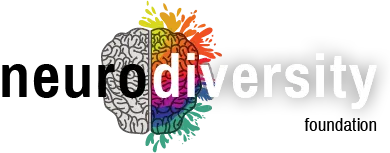Connect With Us
Incredible Strengths of Neurodivergent People
Behavioral Health and the entire medical community is based on identifying deficits in people. The fact is, therapists, physicians and behavioral therapists can only get paid from insurance companies if they categorize you with a deficit (Anxiety, Depression, ASD) and treat you or prescribe medications. There is no speciality that embraces the "superpowers" that many neurodivergent people can use to benefit society.
*Not all neurodivergent people have all these traits or exhibit them to the same capacity. This is simply a reference of traits common to many of us.
Hyperawareness and Focus
Extreme Attention To Detail : The ability to notice slight modifications in patterns, alignment, logic and more.
Perception: The ability to notice when something is slightly off due to noise, vibration and many other attributes.
Observational Skills: We make keen observers, detectives, researchers and sleuths.
Pattern Recognition: We excel at identifying patterns in data, language and many other domains.
Hyper-specialization : Savants often focus on a single area and become extremely proficient in it, while struggling with other tasks or areas of life. You often have a strong sense of time, allowing you to plan and schedule effectively.
Emotional intelligence : You're attuned to the emotions of yourself and those around you, making you an empathetic in many cases.
Sensory awareness : You're often aware of sensory stimuli others might miss, such as sounds or smells.
Spatial awareness : Your understanding of spatial relationships helps you navigate complex environments with ease.
Hypervigilance : While it can be challenging at times, your increased sensitivity to stimuli allows you to stay alert and aware in situations where others might become complacent.
Objectivity: While our insistence on truth can be seen as a problem, our empirical objectivity is extraordinarily valuable as a whole.
Intelligence, Learning and Language Abilities
Analytical thinking : The ability to think analytically is a hallmark of many neurodivergent individuals. They excel at breaking down complex information into manageable parts, allowing for more effective processing and decision-making.
Hyper-Systemizing : People with autism often have a natural ability to break down complex systems into their constituent parts. This hyper-systemizing allows them to analyze and understand intricate relationships between variables, making them adept at solving problems in fields like mathematics, physics, or computer science.
Hyper-Verbal intelligence : Some people with autism have exceptional verbal abilities, often accompanied by intense interests in specific subjects (e.g., language, logic, or math). This hyper-verbal intelligence enables them to engage in intricate conversations, write creative texts, or compose complex mathematical proofs.
Perseveration : Many neurodivergent individuals possess remarkable attentional control, allowing them to concentrate intensely on tasks that interest them. This focus enables them to excel in areas like research, problem-solving, or learning new skills.
Memory and Recall : Research suggests that people with autism may have exceptional memory abilities, particularly when it comes to recalling specific details or patterns. This skill can be invaluable in fields like history, science, or mathematics.
Intense Curiosity : Neurodivergent individuals often exhibit an intense desire for knowledge and understanding. This curiosity drives them to explore complex topics, seek out new information, and ask insightful questions.
Savantism: Certain ND people have a remarkable phenomenon where individuals with autism or other neurodevelopmental disorders exhibit exceptional skills and talents in specific areas, often far beyond what would be expected from someone of their intellectual or cognitive abilities.
Unusual Expertise :Exceptional skills and knowledge in a specific domain, such as art, music, math, or memory.
Innate Ability: Savants may demonstrate an innate talent for their area of expertise, which is not necessarily linked to their overall cognitive abilities.
Prodigious Memory: Some individuals can recall vast amounts of information, such as historical dates, phone numbers, or mathematical formulas.
Mathematical Abilities : Savants may exhibit exceptional math skills, including calculations, geometry, or algebra.
Artistic Talents: Individuals with savantism might display remarkable artistic skills, like drawing, painting, or playing musical instruments.
Language expertise : Some people can learn and master new languages quickly, often with a deep understanding of grammar, syntax, and vocabulary.
Theories Behind Savantism:
Compensatory Theory: Savants may develop exceptional skills as a way to compensate for cognitive deficits or challenges.
Neuroplasticity theory: The brain's ability to reorganize and adapt in response to injury or disease might lead to the development of new, specialized abilities.
Famous Examples:
Daniel Tammet: A mathematician with autism who holds several world records for mental calculations.
Kim Peek : An individual with autism known for his exceptional memory and ability to recall vast amounts of information.
Stephen Wiltshire : An artist with autism who creates detailed, accurate cityscapes from memory.
Implications of Savantism : The study of savantism has significant implications for our understanding of human cognition, intelligence, and the brain's potential for adaptation and reorganization.
Hyper-Specialization: Savants often focus on a single area and become extremely proficient in it, while struggling with other tasks or areas of life.
Divergent Thinking Capabilties: Executive Function versus "Executive Thinking"
Analytical Thinking : Neurodivergent individuals often exhibit strong analytical skills, allowing them to break down complex information into manageable parts.
Divergent Thinking:
Creative Problem Solving: Neurodivergent people often excel in finding novel solutions to complex problems.
Lateral Thinking: Many neurodivergent individuals demonstrate the ability to think outside traditional constraints and explore unconventional ideas.
Obscure Pattern Recognition: Some neurodivergent people are skilled at identifying patterns, which can aid in decision-making and problem-solving. This is an exceptional ability in cryptography, finance, revenue cycle management and many critical industries where education will not overcome the innate ability of the neurodivergent mind.
Types of Logic:
Deductive Reasoning : Neurodivergent individuals often excel in using deductive logic to arrive at conclusions based on given premises.
Abductive Reasoning: Many neurodivergent people are skilled at making educated guesses or forming hypotheses through abductive reasoning.
Probabilistic Thinking : Some neurodivergent individuals demonstrate a strong understanding of probability and statistics, allowing them to make informed decisions.
Notable Examples:
Einstein's Cognitive Profile : Albert Einstein, a neurodivergent individual, was known for his exceptional analytical thinking and ability to think outside traditional constraints.
Ada Lovelace's Mathematical Skills : Ada Lovelace, the first computer programmer, demonstrated remarkable problem-solving skills and logical reasoning in her work.
Terence Tao's Mathematically Gifted Mind : Terence Tao, a mathematician with autism, has made significant contributions to various areas of mathematics, showcasing his exceptional analytical thinking and logic.
Implications for Decision Making:
Reducing Bias: Neurodivergent individuals' strong rationality and objectivity can help reduce cognitive biases in decision making.
Increased Creativity: The ability to think outside traditional constraints can lead to innovative solutions and fresh perspectives.
Improved Accuracy: Strong analytical thinking and attention to detail can result in more accurate decisions.
Postive Social Characteristics
Honesty and Authenticity: Many neurodivergent people are known for their unwavering honesty and commitment to being true to themselves.
Loyalty and Dedication: Neurodivergent individuals often form strong, long-lasting bonds with others, demonstrating a deep sense of loyalty and dedication.
Sensitivity and Empathy: Some neurodivergent people have exceptional emotional intelligence, allowing them to be highly sensitive to the feelings of those around them.
Originality and Creativity : Neurodivergent individuals are often drawn to creative pursuits and can bring unique perspectives to social interactions.
Passion and Enthusiasm : Many neurodivergent people are deeply passionate about their interests and hobbies, which can be infectious and energizing for others.
Deep Friendships : Neurodivergent individuals often form close, meaningful relationships with a smaller circle of friends, which can lead to deep and lasting connections.
Empathetic Listening : Some neurodivergent people are skilled listeners, able to provide a supportive and non-judgmental space for others to share their thoughts and feelings.
Respect for Individuality : Neurodivergent individuals often value and respect the unique qualities of others, promoting a culture of acceptance and inclusivity.
Sense of Humor : Neurodivergent individuals often possess a quirky sense of humor that can be entertaining and endearing to others. We are infamous for our puns and obscure facts and references.
Examples of Autistic Individuals' Social Impact:
Temple Grandin's Advocacy for Acceptance : Temple Grandin, a neurodivergent autism spokesperson, has worked tirelessly to promote understanding and acceptance of neurodiversity.
Dan Aykroyd's Creativity and Humor : Dan Aykroyd, a comedian and actor with Asperger's syndrome, is known for his quick wit and creative humor.
Hannah Gadsby's Storytelling and Empathy : Hannah Gadsby, an Australian comedian with autism, has gained widespread acclaim for her thought-provoking comedy specials that showcase her empathetic listening skills.
Interests and Behaviors
In Depth Knowledge : Many individuals with neurodivergent conditions develop extraordinary expertise in their areas of interest, which can lead to significant contributions.
Expertise in Specific Domains : Many people with neurodivergent conditions develop exceptional knowledge and skills in particular areas, such as:
Mathematically gifted individuals who excel in calculus, geometry, or number theory.
Highly knowledgeable language learners who can converse fluently in multiple languages.
Skilled musicians who compose intricate music or play complex instruments.
Mozart was suspected to be neurodivergent even though a diagnosis did not exist. He exhibited many of the traits in his personal life to warrant a diagnosis.
Highly Focused Interests : Some individuals with neurodivergent conditions have intense passions for specific topics, such as:
Collecting rare items (e.g., coins, stamps, or figurines)
Engaging in extreme sports (e.g., skydiving, rock climbing, or parkour)
Pursuing artistic endeavors (e.g., painting, drawing, or writing)
Highly Structured Approaches : Some individuals with neurodivergent conditions prefer highly organized and systematic methods for managing tasks or activities.
Repetitive Behaviors : Certain people with neurodivergent conditions may engage in repetitive actions or rituals that help them cope with sensory issues or to engage parts of their brain that spawn creativity or problem solving ability.
This is not a complete list. This is just a summary of potential strength that can be applied in the workforce, hobbies and various life skills. If you have a particular ability we would love to hear from you. Please contact us and we will build a community to share these stories and abilities.
PROGRAMS
PLATFORMS
ND FOUNDATION
PARTNERSHIPS
LEGAL
Copyright 2025. Neurodiversity Foundation. All Rights Reserved.








